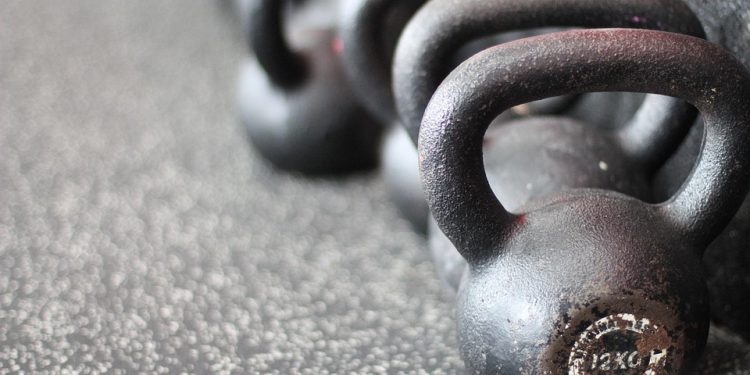Weight loss. It’s a topic riddled with misinformation, fad diets, and unrealistic expectations. But beneath the noise lies a bedrock of scientific principles that, when understood, can empower you to achieve sustainable and healthy weight management. This isn’t about quick fixes; it’s about understanding how your body works and making informed choices that support your long-term health.
Understanding the Energy Balance Equation: Calories In vs. Calories Out
At its core, weight loss boils down to energy balance. This means the relationship between the calories you consume (energy in) and the calories you expend (energy out). When you consistently consume fewer calories than you burn, your body taps into its stored energy (fat) for fuel, leading to weight loss.
The First Law of Thermodynamics and Weight Loss
This concept is rooted in the first law of thermodynamics: energy cannot be created or destroyed, only transformed. Food provides energy (measured in calories or kilojoules). Your body uses this energy for basic functions (breathing, heart rate), physical activity, and digestion. If you provide your body with more energy than it needs, the excess is stored, primarily as fat.
Calculating Your Calorie Needs: A Starting Point
Estimating your daily calorie needs is the first step. Online calculators, like those available at the Academy of Nutrition and Dietetics or using the Mifflin-St Jeor equation, can provide a reasonable starting point. These calculators consider factors like:
- Basal Metabolic Rate (BMR): The energy your body uses at rest.
- Activity Level: A multiplier based on how active you are.
- Weight Loss Goals: A calorie deficit to promote weight loss (typically 500-750 calories per day for a loss of 1-2 pounds per week).
Remember, these are estimates. Monitor your weight and adjust your calorie intake accordingly. Individual metabolisms vary, and what works for one person may not work for another.
Macronutrients: The Building Blocks of Your Diet
While calorie counting is important, the *source* of those calories matters. Macronutrients – protein, carbohydrates, and fats – play distinct roles in your body and influence satiety, muscle mass, and overall health.
Protein: The Satiety Champion and Muscle Builder
Protein is crucial for preserving and building muscle mass, which is essential for maintaining a healthy metabolism. It also has a higher thermic effect than carbs or fats, meaning your body burns more calories digesting it. Protein-rich foods tend to be more satiating, helping you feel fuller for longer.
Examples of good protein sources: Lean meats (chicken, turkey, fish), beans, lentils, eggs, Greek yogurt, tofu.
Recommended intake: Aim for around 0.8-1.2 grams of protein per kilogram of body weight, or higher if you are very active.
Carbohydrates: Your Body’s Primary Energy Source
Carbohydrates are your body’s preferred fuel source. Focus on complex carbohydrates – whole grains, fruits, and vegetables – which provide sustained energy and fiber. Limit simple carbohydrates – sugary drinks, processed foods – which can cause rapid spikes and crashes in blood sugar, leading to cravings and increased fat storage.
Examples of complex carbohydrates: Brown rice, quinoa, oats, sweet potatoes, broccoli, apples.
Considerations: Adjust carbohydrate intake based on activity level. Highly active individuals can tolerate more carbohydrates.
Fats: Essential for Hormone Production and Overall Health
Healthy fats are essential for hormone production, cell function, and nutrient absorption. Choose unsaturated fats – monounsaturated and polyunsaturated – found in foods like avocados, nuts, seeds, and olive oil. Limit saturated and trans fats, which can increase the risk of heart disease.
Examples of healthy fats: Avocados, almonds, walnuts, olive oil, fatty fish (salmon, tuna).
Important note: While healthy, fats are calorie-dense. Use them mindfully.
The Role of Exercise: Burning Calories and Building Muscle
Exercise is a powerful tool for weight loss and overall health. It helps you burn calories, build muscle mass (which increases your resting metabolic rate), and improve insulin sensitivity.
Cardiovascular Exercise (Cardio): Burning Calories Efficiently
Cardio activities like running, swimming, cycling, and brisk walking are effective for burning calories. Aim for at least 150 minutes of moderate-intensity or 75 minutes of vigorous-intensity cardio per week.
Example: A 30-minute brisk walk can burn 200-300 calories, depending on your weight and pace.
Resistance Training (Weightlifting): Building Muscle and Boosting Metabolism
Resistance training is crucial for building and maintaining muscle mass. Muscle burns more calories at rest than fat, so increasing your muscle mass can significantly boost your metabolism.
Example: Lifting weights 2-3 times per week can lead to increased muscle mass and a higher resting metabolic rate.
The Synergy of Cardio and Resistance Training
The most effective approach to weight loss and fitness is to combine cardio and resistance training. This combination maximizes calorie burn, builds muscle, and improves overall health.
Beyond Calories and Macronutrients: The Importance of Sleep, Stress Management, and Hydration
While calorie balance and macronutrient intake are fundamental, other factors play a significant role in weight loss success.
Sleep: The Unsung Hero of Weight Management
Lack of sleep can disrupt hormones that regulate appetite, leading to increased cravings and overeating. Aim for 7-9 hours of quality sleep per night.
How sleep affects weight loss:
- Increased Ghrelin: A hormone that stimulates hunger.
- Decreased Leptin: A hormone that signals fullness.
- Increased Cortisol: A stress hormone that can promote fat storage.
Stress Management: Minimizing Cortisol’s Impact
Chronic stress can lead to elevated cortisol levels, which can promote fat storage, particularly in the abdominal area. Find healthy ways to manage stress, such as exercise, meditation, yoga, or spending time in nature.
Effective stress management techniques:
- Mindfulness Meditation: Focusing on the present moment can reduce stress.
- Deep Breathing Exercises: Help calm the nervous system.
- Yoga: Combines physical activity with mindfulness.
Hydration: Supporting Metabolism and Reducing Appetite
Drinking plenty of water is essential for overall health and can also aid in weight loss. Water helps you feel fuller, supports metabolism, and can even help you burn more calories.
Benefits of hydration for weight loss:
- Increased Satiety: Drinking water before meals can help you eat less.
- Boosted Metabolism: Water is involved in many metabolic processes.
- Reduced Calorie Intake: Replacing sugary drinks with water can significantly reduce your calorie intake.
Common Weight Loss Myths Debunked
The weight loss industry is rife with myths and misinformation. Let’s debunk some common ones:
Myth #1: “Fad Diets are the Fastest Way to Lose Weight”
Fad diets, such as juice cleanses or extreme calorie restriction, may lead to rapid weight loss in the short term, but they are often unsustainable and can be harmful to your health. They often result in muscle loss, nutrient deficiencies, and a rebound effect, where you regain the weight you lost – and often more – once you return to a normal eating pattern.
Myth #2: “Eating Late at Night Causes Weight Gain”
It’s not *when* you eat that matters most, but *how much* you eat overall. If you consume more calories than you burn, you will gain weight, regardless of the time of day. However, eating late at night can sometimes lead to poor food choices and overeating due to fatigue or boredom.
Myth #3: “You Need to Cut Out All Carbs to Lose Weight”
Carbohydrates are not the enemy! Complex carbohydrates are an important source of energy and fiber. The key is to choose healthy carbohydrate sources and consume them in moderation as part of a balanced diet.
Myth #4: “Spot Reduction is Possible”
Unfortunately, you can’t target fat loss in specific areas of your body. When you lose weight, you lose it from all over, and the distribution of fat loss is largely determined by genetics.
Sustainable Strategies for Long-Term Weight Loss
The key to successful weight loss is adopting sustainable lifestyle changes that you can maintain over the long term. This is not a sprint; it’s a marathon.
Focus on Gradual Changes
Instead of making drastic changes overnight, focus on making small, gradual changes to your diet and exercise routine. This approach is more sustainable and less likely to lead to burnout.
Example: Start by adding one serving of vegetables to each meal or walking for 30 minutes three times a week.
Practice Mindful Eating
Pay attention to your hunger and fullness cues. Eat slowly and savor your food. Avoid distractions while eating, such as watching television or working on your computer.
Tips for mindful eating:
- Eat slowly: Take small bites and chew thoroughly.
- Pay attention to your hunger cues: Eat when you’re hungry and stop when you’re full.
- Avoid distractions: Turn off the TV and put away your phone.
Set Realistic Goals
Set realistic and achievable goals. Aim for a weight loss of 1-2 pounds per week. Celebrate your successes along the way and don’t get discouraged by occasional setbacks.
Example: Instead of saying, “I want to lose 50 pounds,” set smaller goals like “I want to lose 2 pounds this week.”
Seek Support
Surround yourself with supportive people who can encourage you on your weight loss journey. Consider joining a weight loss group or working with a registered dietitian or personal trainer.
Benefits of support:
- Accountability: Having someone to check in with can help you stay on track.
- Motivation: Supportive people can provide encouragement when you’re feeling discouraged.
- Education: Registered dietitians and personal trainers can provide expert guidance.
Track Your Progress
Keep track of your food intake, exercise routine, and weight loss progress. This can help you identify patterns and make adjustments as needed. Use a food journal, a fitness tracker, or a weight loss app to monitor your progress.
The Importance of Consulting Professionals
This article provides general information about weight loss, but it’s not a substitute for professional medical advice. Consult with a doctor, registered dietitian, or other qualified healthcare provider before starting any weight loss program.
A registered dietitian can help you create a personalized meal plan that meets your individual needs and goals. A doctor can assess your overall health and identify any underlying medical conditions that may be contributing to your weight. A personal trainer can help you develop a safe and effective exercise program.
Conclusion
Sustainable weight loss is a journey, not a destination. It requires a holistic approach that encompasses understanding the science of energy balance, prioritizing nutrient-dense foods, engaging in regular physical activity, managing stress, prioritizing sleep, and seeking professional guidance when needed. By embracing these principles, you can empower yourself to achieve your weight loss goals and improve your overall health and well-being.
Frequently Asked Questions (FAQs)
Here are some frequently asked questions about weight loss:
Q: How many calories should I eat to lose weight?
A: This depends on several factors, including your age, gender, weight, height, and activity level. A general guideline is to create a calorie deficit of 500-750 calories per day to lose 1-2 pounds per week. Use an online calculator or consult with a registered dietitian to determine your specific calorie needs.
Q: What is the best diet for weight loss?
A: There is no one-size-fits-all diet for weight loss. The best diet is one that you can stick to long-term and that meets your individual nutritional needs. Focus on eating whole, unprocessed foods, including plenty of fruits, vegetables, lean protein, and healthy fats. Avoid fad diets and restrictive eating patterns.
Q: Is it okay to have cheat meals?
A: Allowing yourself occasional treats or “cheat meals” can actually help you stay on track with your weight loss goals. Completely restricting yourself can lead to cravings and binge eating. However, it’s important to practice moderation and not let cheat meals derail your progress.
Q: How much exercise do I need to do to lose weight?
A: Aim for at least 150 minutes of moderate-intensity or 75 minutes of vigorous-intensity cardio per week, plus resistance training 2-3 times per week. The more active you are, the more calories you will burn.
Q: Is it possible to lose weight too fast?
A: Yes. Losing weight too quickly (more than 2 pounds per week) can be harmful to your health. It can lead to muscle loss, nutrient deficiencies, and gallstones. Aim for a gradual and sustainable rate of weight loss.
Q: What if I’m not seeing results despite dieting and exercising?
A: If you’re not seeing results, it’s important to evaluate your diet and exercise routine. Are you accurately tracking your calorie intake? Are you exercising consistently? Are you getting enough sleep and managing stress? It’s also possible that you have an underlying medical condition that is affecting your weight. Consult with a doctor or registered dietitian to rule out any medical issues and to get personalized advice.
Q: What are some healthy snack options for weight loss?
A: Good snack options include fruits, vegetables, nuts, seeds, yogurt, and hard-boiled eggs. Choose snacks that are high in protein and fiber to help you feel full and satisfied.
Q: Can I lose weight without exercise?
A: Yes, it is possible to lose weight without exercise, but it may be more difficult. Exercise helps you burn calories and build muscle, which can boost your metabolism and make it easier to lose weight. Combining diet and exercise is the most effective approach for sustainable weight loss.
Q: Are there any supplements that can help with weight loss?
A: Many weight loss supplements are marketed as quick fixes, but most are ineffective and some can be harmful. Talk to your doctor before taking any weight loss supplements. Some supplements may have potential benefits, but they should not be used as a substitute for a healthy diet and exercise.
Q: How can I stay motivated on my weight loss journey?
A: Stay motivated by setting realistic goals, tracking your progress, rewarding yourself for your successes, finding a support system, and focusing on the positive benefits of weight loss, such as improved health and energy levels.












